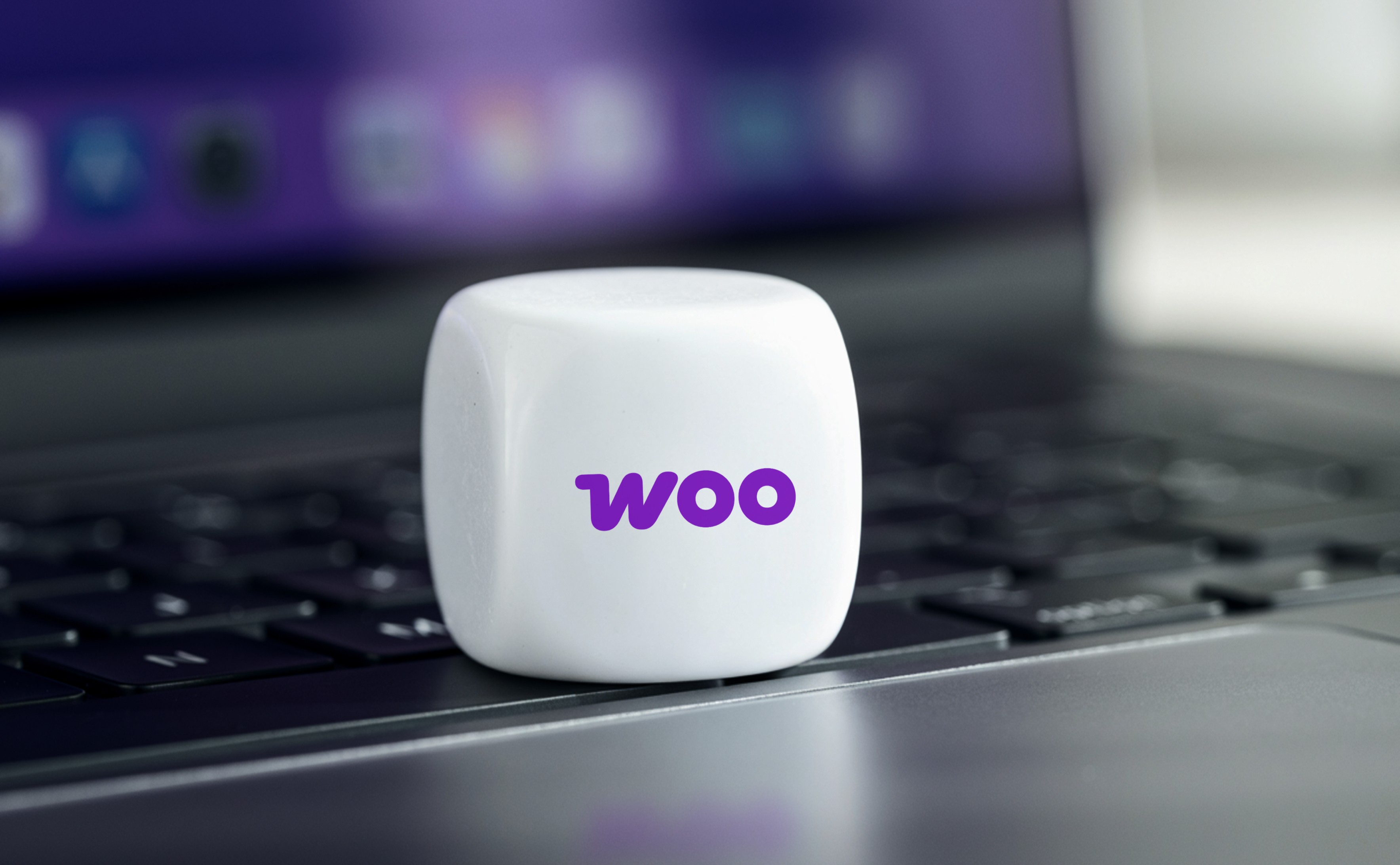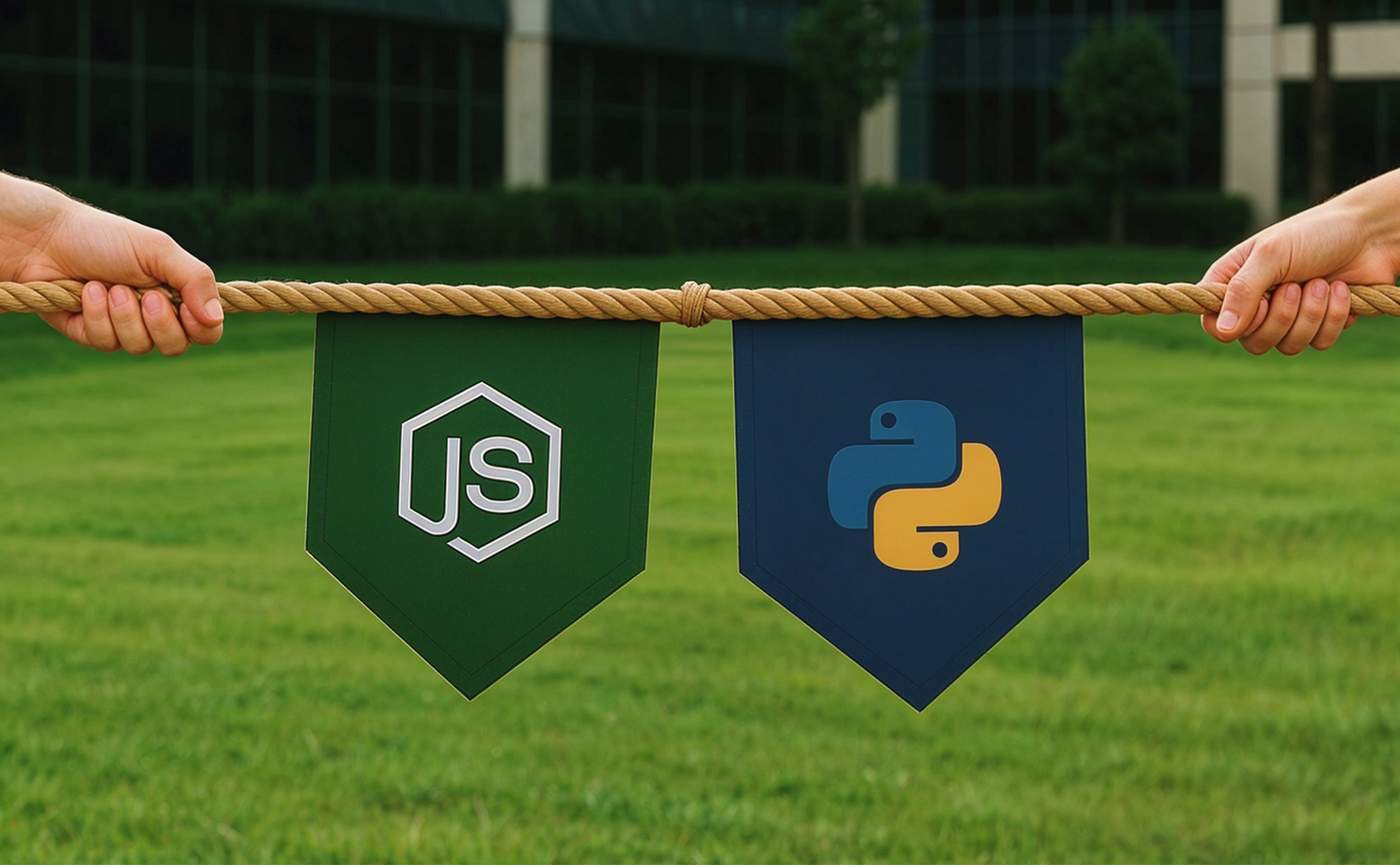BigCommerce vs Shopify: Which E-commerce Platform Is Right for You in 2026?

Selecting the right e-commerce platform is a crucial decision that can define your brand’s online success. Among the various platforms available, Shopify and BigCommerce consistently stand out due to their distinct advantages in terms of features, pricing, and scalability.
To understand the relevance of this choice, consider this: According to the Semrush report, global e-commerce traffic reached nearly 25 billion in early 2022. Statista further projects that the global e-commerce market will reach US$4.32 trillion by 2025, with a compound annual growth rate (CAGR) of 8.02%, and it is expected to grow to a massive US$5.89 trillion by 2029.
With e-commerce competition at an all-time high, selecting a platform that aligns with your business requirements is crucial. Keep reading the blog to get a clear understanding of everything you need to know, from key features and pricing comparisons to pros and cons, to help you choose the best platform for selling online.
In a Nutshell
Shopify excels with its simple and intuitive user interface, vast app ecosystem for extended functionality, and streamlined setup, making it ideal for ease of use and rapid deployment. On the other hand, BigCommerce is known for its strong built-in features, advanced headless commerce options, and no transaction fees, providing more flexibility and powerful tools for managing multiple stores and B2B needs, which is great for businesses that are complex and growing.
What is Shopify?
Shopify can be named as a popular e-commerce platform that allows businesses of all sizes to run stores online. It was founded in 2006, offering users a user-friendly interface that allows them to create and manage customizable storefronts, process payments, and handle inventory. As of now, there are over 5.8 million live websites actively using Shopify.
Shopify is a preferred platform due to its user-friendly interface, vast array of third-party apps and integrations, and its ability to scale, making it a favored choice for both small businesses and large enterprises. As per the reports from Statista, Shopify’s share in the global e-commerce tech market is 10%.
2024 was a standout year for Shopify. We seized every opportunity to fuel our growth, and it showed in the results, quarter after quarter,
Key Features and Strengths
- User-friendly drag-and-drop store builder.
- Safe and flexible payment options.
- Design that is responsive on mobile devices.
- A vast marketplace for apps and integrations.
- Robots SEO and marketing tools.
- Customer support is available 24/7.
- Selling across multiple channels, including social media and marketplaces.
Ideal Business Types for Shopify
- Startups and small enterprises.
- Online dropshipping stores.
- Retail businesses expanding into the digital space.
- Subscription-based product services.
- Large enterprises require scalable solutions.
What is BigCommerce?
BigCommerce was founded in 2009, and like Shopify, it’s a well-known e-commerce platform designed to help businesses build and scale their online stores.
BigCommerce emphasizes offering built-in features that are necessary for creating and managing online stores rather than depending on third-party applications. These features include tools for search engine optimization (SEO), multi-channel selling, and additional capabilities.
A recent three-month analysis of merchants transitioning to BigCommerce found that the SaaS vendor is often the first choice for many. The majority of retailers transitioned from their custom online purchasing cart to BigCommerce, which offers them efficient, pre-installed solutions. According to the reports, BigCommerce is used by 39,758 live sites.
BigCommerce is ideal, “If your organization is primarily focused on differentiating with business agility and a fast time to market with a platform that is very business user-friendly.”
IDC MarketScape: Worldwide Headless Digital Commerce Applications 2020-2021 Vendor Assessment
Key Features and Strengths
- Integrated SEO techniques to improve store presence.
- Multi-channel marketing using websites such as Facebook, Instagram, eBay, and Amazon.
- No transaction fees, which helps companies save money.
- Scalable architecture is perfect for expanding product lists.
- Themes that are adaptable to mobile devices.
- Access to advanced APIs for more intricate custom integrations.
- Robust B2B features, including configurable pricing and customer groupings.
- PCI-compliant, quick, and safe hosting infrastructure.
Ideal Business Types for BigCommerce
- Mid- to large-sized organizations looking for scalability.
- Businesses in the wholesale and B2B sectors require advanced sales tools.
- Enterprises moving away from conventional or custom e-commerce platforms.
- Companies that prioritized marketplace expansion and multichannel sales.
- Businesses looking for powerful SEO features without heavily depending on third-party apps.
A Quick Comparison Table between BigCommerce vs Shopify
Both BigCommerce and Shopify are incredible in their own ways, and some differences make them different from one another and a better choice for specific types of users. Here is a quick comparison between Shopify and BigCommerce.
| Features | Shopify | BigCommerce |
|---|---|---|
| Ease of Use | It comes with an easy-to-use editor and setup tool. | Advanced features require more technical skills. |
| Apps & Scalability | It assists in growing your business with a larger app ecosystem. | It has more built-in features, reducing the need for apps and offering unlimited API calls. |
| Pricing & Costs | Additional transaction fees are charged depending on the plan. | It offers reduced additional costs with no transaction fees across all plans. |
| Themes & Design | Provides a vast selection of advanced and customizable themes. | Only provides limited themes when compared with Shopify. |
| Sales Features | Third-party app additions are required for comprehensive sales capabilities. | It provides a large number of natively integrated features across various sales channels and POS systems. |
| E-commerce Dropshipping | Provides dropshipping through apps, including Oberlo and supplier relationships. | Offers dropshipping with third-party integrations. |
| Security | It ensures store protection and validation for secure online payments. | The system meets compliance standards and implements multiple layers of protection for user data security and privacy. |
| Marketing Features | Offers a wide range of built-in marketing tools, but some advanced campaigns may require third-party apps. | Provides more built-in marketing features out of the box, reducing dependence on external apps. |
| Payment Gateways | Shopify Payments eliminates additional transaction fees that would typically be charged when using a third-party payment processor. | It offers a range of payment options without any charges. |
| AI Capabilities | Shopify Magic generates product descriptions and emails while also enhancing images. The Sidekick assistant offers guidance and analytics right within the dashboard. | BigAI is developing some impressive features, but most of them are geared towards enterprise users; standard users only receive a product description generator. |
| Customer Support | It provides better customer service through its additional social media support. | It provides better customer service through its additional social media support. Enhancing the organization and clarity of support can be beneficial. |
| Internationalization | The app supports multiple currencies and languages. | Multi-storefront functionality with automatic translations. |
| SEO Tools | Allows customization of meta tags and includes basic SEO features, but the URL structure is less flexible. | Offers general SEO control with customizable URLs, metadata, and advanced optimization settings. |
BigCommerce vs Shopify: Comparison of Features
‣ Pricing & Cost
The price range for both Shopify & BigCommerce is around $19 to $299. The types of features available on each plan primarily determine the pricing differences between BigCommerce and Shopify. For instance, the abandoned cart recovery feature is available in Shopify even in the Basic Plan, but it's only available in the Plus Plan of BigCommerce. Here is the breakdown of the prices for BigCommerce and Shopify; choose the option that best aligns with your business requirements and budget.
BigCommerce
BigCommerce gives its users a free trial that lasts for 15 days before making your enterprise plan. Here are the premium plans available on this platform:
| Plan | Price | Annual Revenue Limit | Payment Fees | Support | Ideal for |
|---|---|---|---|---|---|
| Standard | $29 per month. | Up to $50,000. | 0% added payment fees. | 24/7 live phone and chat support. | Individuals and small brands. |
| Plus | $79 per month. | Up to $180,000. | 0% added payment fees. | 24/7 live phone and chat support. | Ambitious small businesses. |
| Pro | $299 per month (annually billed). | Up to $400,000 or more. | 0% added payment fees. | 24/7 live phone and chat support. | Fast-growing businesses. |
| Enterprise | Custom pricing and terms. | Over $1 million. | 0% added payment fees. | 24/7 live phone and chat support. | Large-scale enterprises with high revenue. |
Shopify
Shopify's pricing is four-tiered, crafted to help your e-commerce business grow and adapt to your expanding needs. For businesses that are looking for cost stability, Shopify provides a more predictable and lower cost of ownership over time, with platform costs reported to be as much as 32% lower than those of BigCommerce.
| Plan | Basic | Grow | Advanced | Plus |
|---|---|---|---|---|
| Ideal For | Solo entrepreneurs | Small teams | Growing businesses | High-volume businesses |
| Monthly Price | $29 | $79 | $299 | $2300 (3-year term) |
| Support | 24/7 chat | Enhanced 24/7 chat | Enhanced 24/7 chat | Priority 24/7 phone support |
| Staff Accounts | Not listed | 5 | 15 | Unlimited |
| Inventory Locations | 10 | 10 | 10 | 200 |
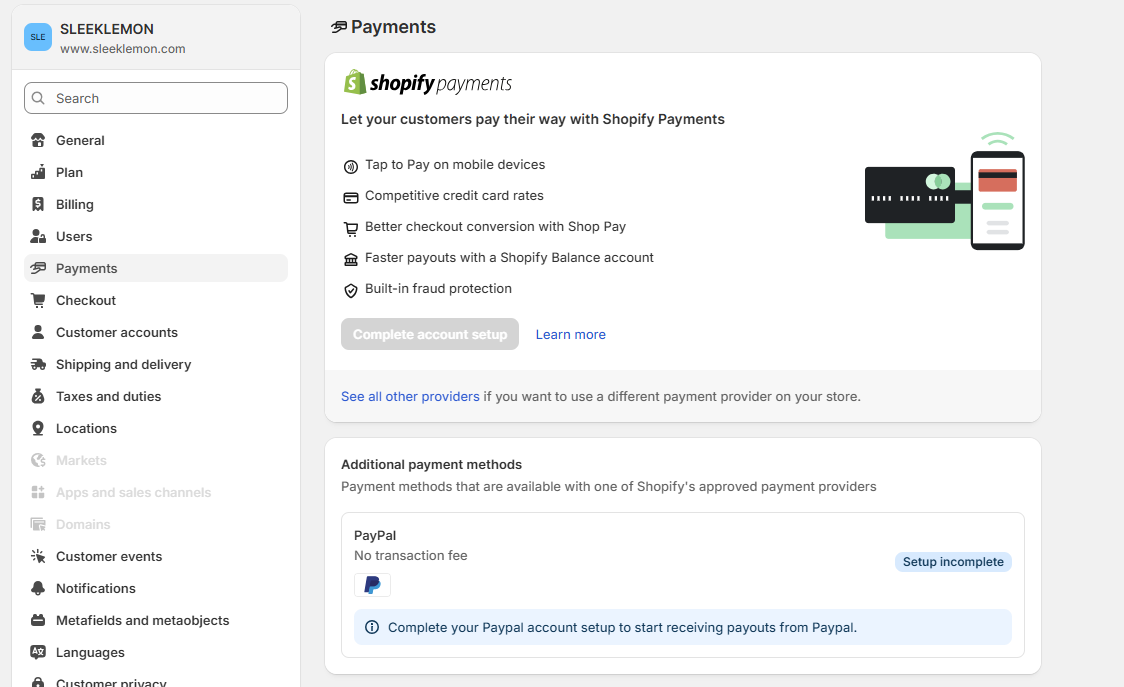
🏆 Verdict: BigCommerce is the best option for small to medium-sized businesses as it provides better value for money with no transaction fees and more built-in features. For large enterprises, Shopify is a cost-effective solution due to its unlimited sales volume, strong app ecosystem, and better scalability.
‣ Ease of Use
BigCommerce
BigCommerce is designed to be user-friendly for those with limited technical expertise, making it a good choice for beginners to launch and manage an online store. At the same time, it offers the flexibility and advanced tools developers need to customize and extend functionality through APIs, custom themes, and integrations. While it may take some time to get fully acquainted with the platform’s capabilities, BigCommerce provides a wide range of built-in features that help streamline setup and support business growth without relying heavily on third-party apps.
Shopify
Shopify is the popular choice for beginners who are setting up online stores. It’s a breeze to use since Shopify’s dashboard is minimal and simple to navigate. It has already built different sections; the only thing you have to do is follow the in-app instructions and start editing them. Rather than having to deal with the technical aspects of running a business, you can concentrate on planning your business strategy.
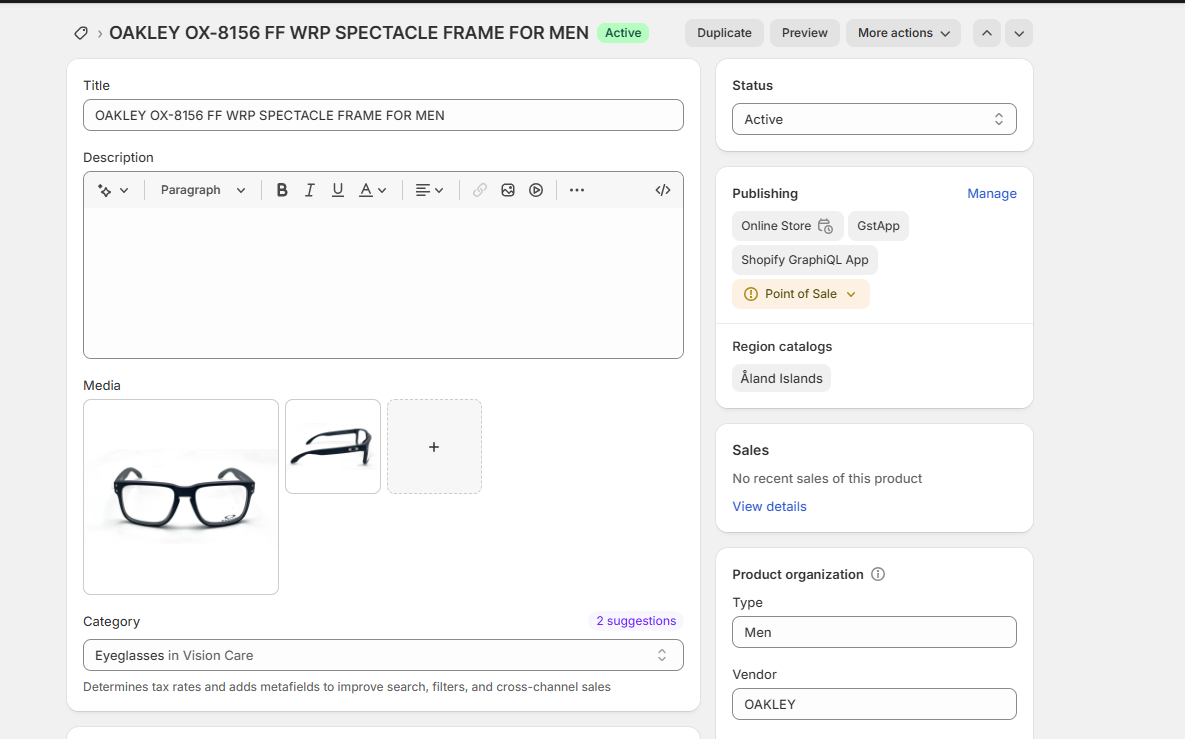
🏆 Verdict: When it comes to ease of use, Shopify is the right choice. It provides its users with a simple setup process, an intuitive editor, and a helpful step-by-step guide. However, while BigCommerce also offers powerful features, it is more complicated and harder to learn.
‣ Themes & Design
BigCommerce
The official theme store sorts the approximately 196 different BigCommerce themes by industry, layout, and price. There is a wider range of industries to choose from. Moreover, the free BigCommerce themes are excellent options for beginners, and if you're interested in a paid theme, you can also consider it. If you're unsure where to start, check out the best BigCommerce themes for ideas.
Shopify
At the Shopify theme store, you can easily access around 212 themes for different industries and styles at different price ranges. You can find the perfect theme based on searching via the layout size of the store, industry, navigation style, and more. Shopify's themes are modern and professional, and you can choose from free or paid options. The Shopify themes allow their users superb levels of customization since they are easy to personalize.

🏆 Verdict: When it comes to themes and design, Shopify is the real winner. Its user-friendly platform and diverse selection of aesthetically pleasing themes make it the perfect choice for businesses wishing to develop stylish and professional online stores. Even though BigCommerce gives customization options, it lacks the visually appealing templates and intuitive platform that Shopify delivers.
‣ Customization
BigCommerce
BigCommerce has a vast collection of themes, but most of them feel a little outdated. The customization feature of BigCommerce is also limited unless you are willing to delve into the code. It may take more hours to achieve a polished look without coding expertise.
Shopify
The themes available on Shopify’s store are professionally designed templates, and they are easily customizable. Even if you’re not a Shopify expert, the user-friendly feature helps you easily tweak colors, fonts, and layouts using the drag-and-drop editor. Even if you want to add a custom banner or change the product grid, Shopify makes it simple.
🏆 Verdict: Shopify offers a more modern and user-friendly customization experience with professionally designed themes and an intuitive drag-and-drop editor. In contrast, BigCommerce requires more technical effort to achieve similar results, as its themes are less visually updated and customization often depends on coding knowledge.
‣ Apps & Add-ons
BigCommerce
BigCommerce provides 1500+ apps across various categories, including accounting, checkout, and security. It also features robust built-in tools that minimize the need for third-party solutions. With its open APIs and a reliable 99.99% uptime, the platform facilitates scalable growth. The Enterprise Plan further enhances this by offering unlimited API calls and multi-storefront capabilities. Additionally, strong integrations with Google products and expert consulting services make BigCommerce an excellent choice for ambitious e-commerce businesses.
Shopify Apps
Shopify features the largest app marketplace, featuring over 8000 apps offering a wide range of solutions for shipping, customization, marketing, and more. Users can explore trending, top-rated, or categorized content according to their specific needs. For businesses looking to expand globally, Shopify Plus offers advanced tools, such as multi-channel selling, enhanced security, and support for global expansion that goes beyond the standard plans.
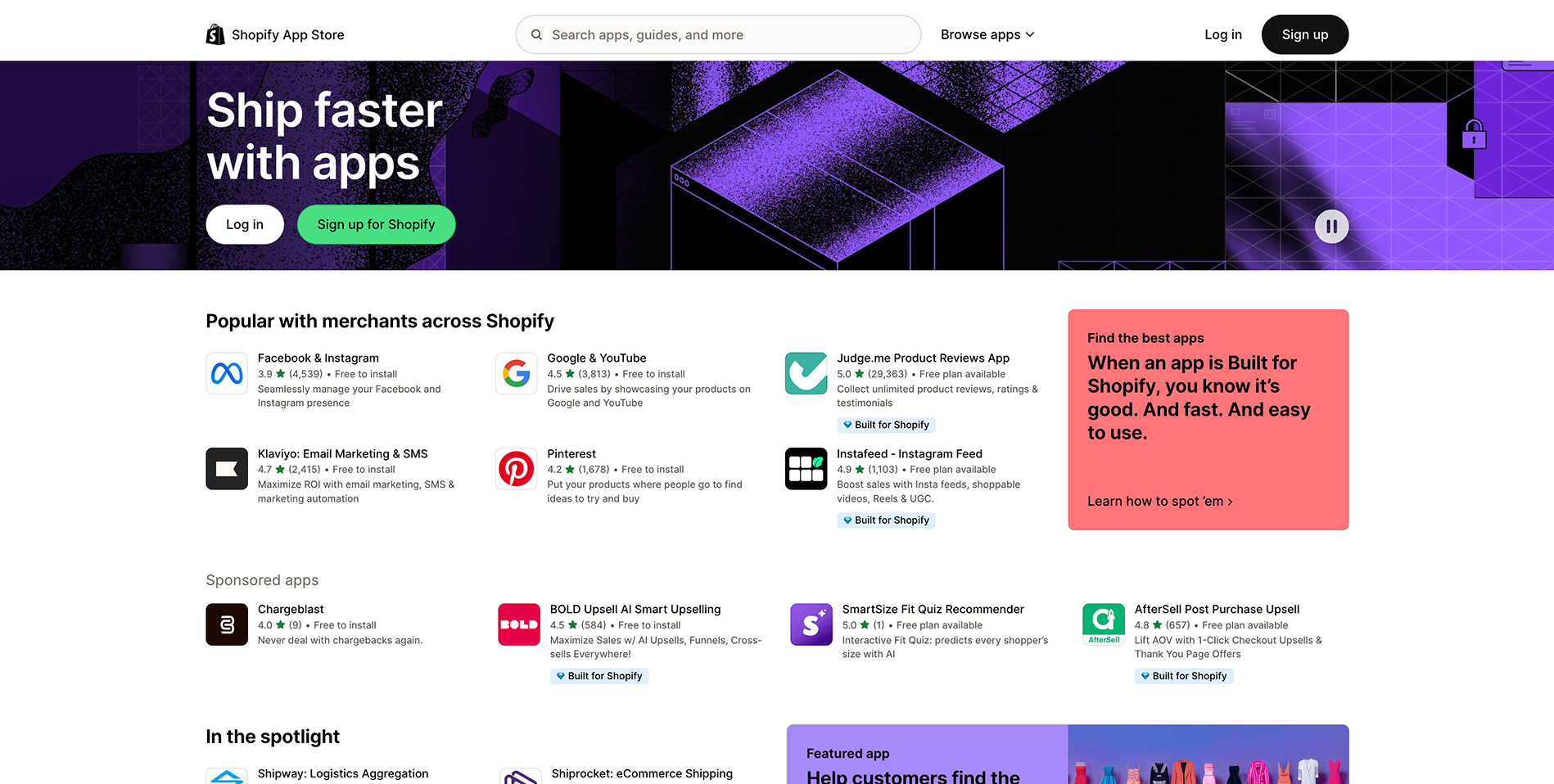
🏆 Verdict: Shopify is better suited for sellers or those looking to grow their business. With the flexibility and convenience of an open SaaS platform, there are limitless opportunities to build, innovate, and grow. BigCommerce stands out with stronger built-in features and fewer dependencies. This makes it a scalable and cost-effective choice for businesses aiming for steady and long-term growth.
‣ Payment Gateways and Transaction Fees
BigCommerce
BigCommerce supports 65+ payment gateways, and this includes PayPal, Amazon Pay, Stripe, and more, without charging transaction fees for third-party providers. It also offers PCI compliance and mobile-optimized checkout. With multi-currency support and flexible provider options, BigCommerce distinguishes itself from competitors like Shopify by offering complete freedom in payment selection for global ecommerce.
BigCommerce rarely charges transaction fees beyond monthly plan fees. However, payment processing fees charged by third-party providers like PayPal or Stripe still apply. These fees vary from 2.2% to 2.9% plus $0.30 for each transaction, depending on the payment provider and plan.
Shopify
Shopify transaction fees depend on your plan, payment method, and whether the sale is online or in person. Online transactions with Shopify Payment range from 2.4% to 2.9% plus $0.30 per transaction, while in-person fees are slightly lower at 2.4% to 2.7%. When using a third-party provider, an additional fee is typically charged, which is usually around 2%.
🏆 Verdict: BigCommerce offers better cost transparency by not charging extra transaction fees beyond your plan, making it more affordable for third-party payment use. Shopify provides competitive rates with Shopify Payments, but adds extra fees for other gateways, which can increase overall costs for merchants not using its native processor.
‣ Security
BigCommerce
BigCommerce protects consumer data and transactions with enterprise-grade security that complies with PCI DSS Level 1. It guarantees a safe and dependable online business with integrated SSL support, firewalls, intrusion detection systems, and round-the-clock monitoring. This strong SaaS platform prioritizes security, making it a reliable option for e-commerce enterprises.
Shopify
Shopify provides robust security features, including integrated PCI compliance, to protect payment and customer information. Each store, even those with a custom domain, includes a free SSL certificate to ensure your website operates with secure HTTPS. This encryption enhances SEO performance and protects your e-commerce business from online threats, ultimately boosting customer confidence.
🏆 Verdict: Both BigCommerce and Shopify provide robust, reliable security measures, including PCI compliance and SSL encryption. BigCommerce focuses on enterprise-level protection, offering advanced tools such as firewalls and 24/7 monitoring. In contrast, Shopify combines solid security features with SEO, HTTPS, and a user-friendly design. Both platforms are well equipped to protect customer data and secure transactions.
‣ Customer Support
BigCommerce
BigCommerce provides regular support via live chat, email, and phone. When you sign up for the free trial, you will receive a 10-minute introductory call aimed at understanding your business better and offering tailored guidance. Customers who choose the enterprise-level plan benefit from priority support, which includes onboarding consultants and dedicated calls from experienced BigCommerce staff.
Shopify
Shopify provides standard customer support 24/7 via live chat, email, and phone. Additionally, Shopify offers assistance through social media channels and maintains a comprehensive help centre. The Shopify editor directs users to relevant support pages within the Shopify Knowledge Center, thereby facilitating a seamless self-help experience. This feature gives Shopify a slight advantage in terms of support accessibility.
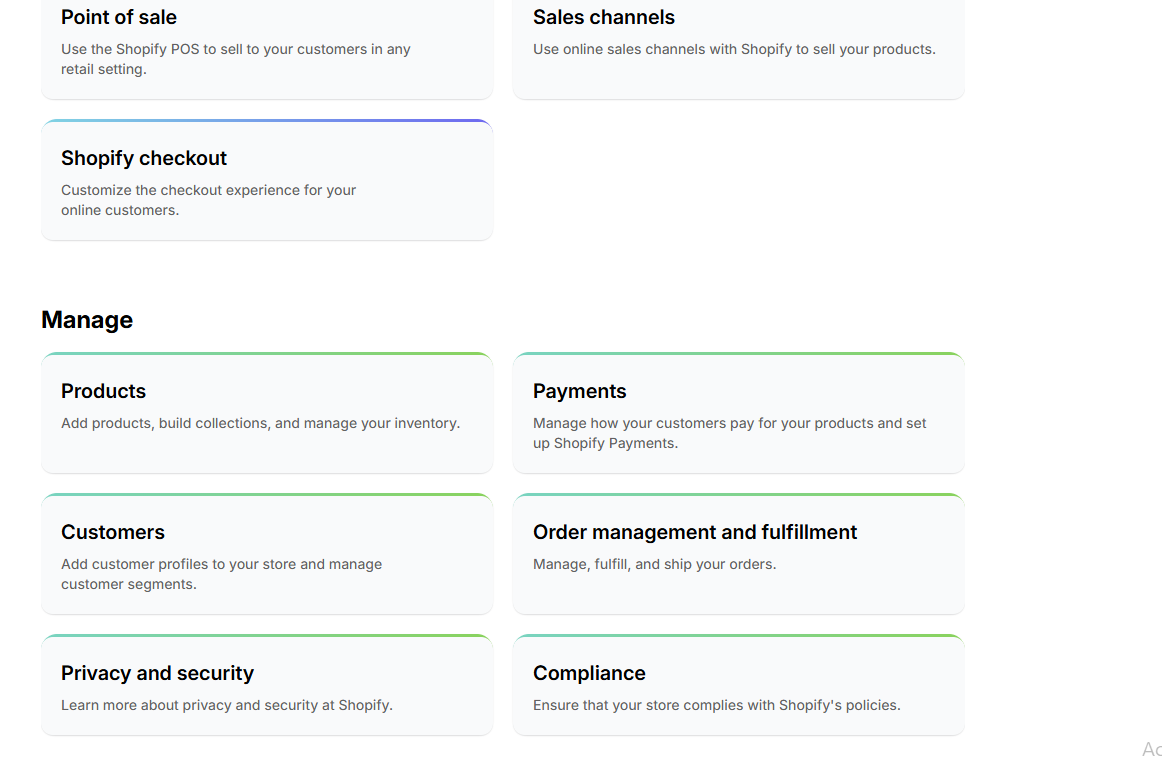
🏆 Verdict: Both BigCommerce and Shopify provide 24/7 customer support via live chat, email, and phone. However, Shopify differentiates itself with additional support options, such as assistance through social media and built-in guidance within its editor. Meanwhile, BigCommerce enhances its offering with personalized onboarding for new users and priority support for enterprise clients.
‣ SEO and Marketing Tools
BigCommerce
BigCommerce is available with powerful built-in SEO tools, including customizable URLs, schema markup, and automatic 301 redirects. It provides flexible URL structures and supports native AMP for enhanced mobile SEO.
BigCommerce also uses a built-in content delivery network (CDN) to enhance page loading speed, which is also a ranking factor. This built-in functionality reduces the need for multiple SEO apps, further leading to overall cost reduction.
When it comes to marketing features, BigCommerce provides built-in ones such as promotions, coupon codes, banners, and abandoned cart emails.
Shopify
Shopify offers a range of built-in SEO tools, including customizable URLs, sitemaps, and support for structured data. It also includes a built-in CDN (Content Delivery Network), which helps improve site speed and performance globally. Alongside SEO, Shopify provides strong marketing features, like email campaigns, social media integrations, influencer collaborations, and SMS marketing, making it a powerful platform for boosting visibility and driving sales. Moreover, Shopify stores achieve a 12% higher conversion rate on average compared to BigCommerce.
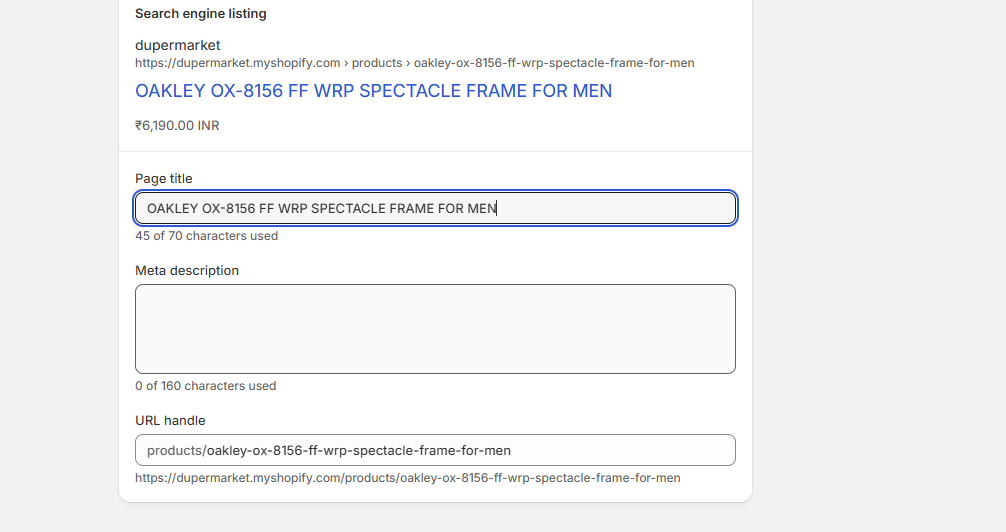
🏆 Verdict: Both platforms offer solid SEO capabilities, including customizable URLs and CDNs for faster page loading. BigCommerce stands out with advanced built-in SEO tools and fewer dependencies on third-party apps, making it cost-effective. However, Shopify excels in marketing features and drives higher average conversion rates, offering a more comprehensive toolkit for sales growth.
‣ Scalability and Performance
BigCommerce
BigCommerce is a solid platform for small to medium-sized stores, offering user-friendly features and scalability. It has also significantly evolved to effectively cater to large enterprises, providing robust solutions for high-volume business and complex needs. It offers businesses cloud-based infrastructure, allows for elastic scaling, and features an open architecture with robust APIs for advanced customization. It also has more built-in features than Shopify, including the absence of transaction fees on external gateways and support for multiple storefronts; it is a cost-effective option. However, compared to Shopify, it presents a more challenging learning curve and a less curated app ecosystem.
Shopify
Shopify offers business enterprise-grade scalability, enabling merchants to focus on their business without the burden of managing infrastructure. Shopify Plus specifically caters to managing high-volume transactions, accommodating peak traffic spikes, and supporting global multi-store operations. Shopify has a globally distributed content delivery network (CDN), and automatic server scaling ensures that brands can grow without encountering infrastructure bottlenecks.
🏆 Verdict: Both platforms scale well for growing businesses. BigCommerce provides a greater range of pre-built features and flexible customization options, albeit with a more challenging learning curve. Shopify provides smoother scalability, easier management, and powerful enterprise tools, making it better suited for fast-growing, global businesses.
BigCommerce: Strengths and Weaknesses
Strengths
- Scalability and Flexibility: BigCommerce supports businesses at their growing phase by handling large product catalogs and high transaction volumes. Strong API capabilities and the ability to sell across multiple channels support this, allowing businesses to adapt and grow without any limitations.
- Comprehensive Built-in Features: BigCommerce provides numerous features such as product filtering, multi-currency support, and advanced SEO tools, which lessen the need for costly third-party apps.
- No Transaction Fees: BigCommerce does not impose any additional fees during transactions, regardless of the plan chosen or the payment gateway used. This can represent significant cost savings for businesses with high sales volumes.
- Strong Security Features: BigCommerce places a high priority on security, implementing measures such as PCI DSS Level 1 certification, SSL certificates, multi-factor authentication (MFA), and conducting regular security audits and updates. BigCommerce designs these efforts to safeguard customer data and ensure a secure shopping experience.
- Multi-Currency and International Selling: This platform offers support for multiple currencies. Localized payment options and tax settings make it an excellent choice for businesses looking to expand into international markets. This feature sets it apart from some of its competitors.
Weaknesses
- Setup Complexity: For some users, BigCommerce is more challenging to set up and navigate compared to more user-friendly platforms like Shopify.
- Sales Limits: Lower-tier plans include yearly online caps, forcing users to upgrade to higher-priced plans as their sales increase.
- SEO Limitations: BigCommerce has some built-in SEO features, and users tend to find them less comprehensive than those offered by other platforms.
- Dependence on Third-Party Apps: Although BigCommerce provides numerous built-in features, accessing certain advanced functions and integrations might necessitate purchasing third-party apps, increasing the overall cost and complexity.
- Requires Technical Expertise For Customization: BigCommerce provides built-in customization options, and achieving highly specific design changes or functionality requires expertise in coding and, maybe, the use of third-party developers. This can be both time-consuming and expensive.
Still unsure whether Shopify or BigCommerce is the better fit for your business?
Let's talkLoading...
Shopify: Strengths and Weaknesses
Strengths
- User-Friendly Interface: Shopify provides its users with a drag-and-drop interface, which allows customers to easily set up and maintain an online store. The user-friendly interface enables users to handle even without prior technical expertise.
Shopify is the go-to choice because of its simplicity and ease of use.
- Forbes
- Extensive App Store: Shopify’s app store offers its users a wide range of integrations and add-ons that are capable of extending functionality, customizing the store, and improving the user experience.
- Scalability: Shopify can accommodate businesses from start-ups to large enterprises. Shopify's scalability is a result of its extensive ecosystem of apps and integrations, strong features, and cloud-based infrastructure.
- Payment Solutions: Shopify offers its customers various payment solutions that enable businesses to accept payments online. The built-in solution in Shopify simplifies payment processing; it integrates directly with the platform, eliminating the need for third-party providers for many users.
- Multi-Channel Support: Shopify POS enables businesses to sell products both online and in physical stores, providing a versatile solution for retailers operating across multiple channels.
Weakness
- Cost of Apps: While the app store provides a wide range of options, the cumulative cost of using multiple apps can become significant, potentially raising the overall expenses associated with Shopify.
- Customization Limitations: Shopify allows design changes, but advanced customization often needs coding skills or a developer. This can be challenging for users without technical support.
- Reliance on Third-Party Services: Shopify relies on third-party apps for many advanced features, which can increase costs and cause issues if the service fails or changes unexpectedly.
- No Email Hosting: Shopify does not provide email hosting, necessitating that users depend on third-party providers for their email services, which can affect brand consistency.
- Potential for Feature Gaps: Even though the app store is extensive, some users may find that certain advanced features or functionalities are missing or require additional apps.
- Dependence on Online Marketing: Shopify's success is heavily reliant on online marketing efforts. The lack of diversification in marketing strategies can limit reach and potential customer acquisition.
Wondering if Shopify is the right fit for your fast-scaling brand?
Let's talkLoading...
Both Shopify and BigCommerce are excellent e-commerce platforms, but Shopify is a standout choice for most businesses. With its ease of use, powerful Shopify Plus features, headless commerce support, and intuitive drag-and-drop customization, Shopify is ideal for fast-growing brands seeking premium ecommerce capabilities and global scalability. However, BigCommerce remains a strong option for those looking for a more cost-effective solution with robust built-in features, no transaction fees on external gateways, and flexible backend customization through APIs.
While Shopify is ideal for those seeking maximum control combined with simplicity and effective marketing tools, BigCommerce is a better fit for tech-savvy businesses that emphasize value and prefer to rely less on third-party applications. Ultimately, your best choice will depend on your specific business goals and the direction you intend to pursue. For complex needs or custom solutions, consider the benefits of hiring e-commerce developers.
So, looking for the best e-commerce platform that fulfills your e-commerce aspirations? If you are confused about making the right choice for your business, WAC is here to help you. Being the leading e-commerce website design and development company, we assist you in crafting conversion-focused storefronts to drive conversions. Hire our Shopify and BigCommerce developers to build an exceptional online experience that can boost your brand. We offer you comprehensive e-commerce services to build a strong business. Let's talk!
Curious if BigCommerce fits your fast-scaling business?
Let's talkLoading...
Discover Digital Transformation
Please feel free to share your thoughts and we can discuss it over a cup of tea.


